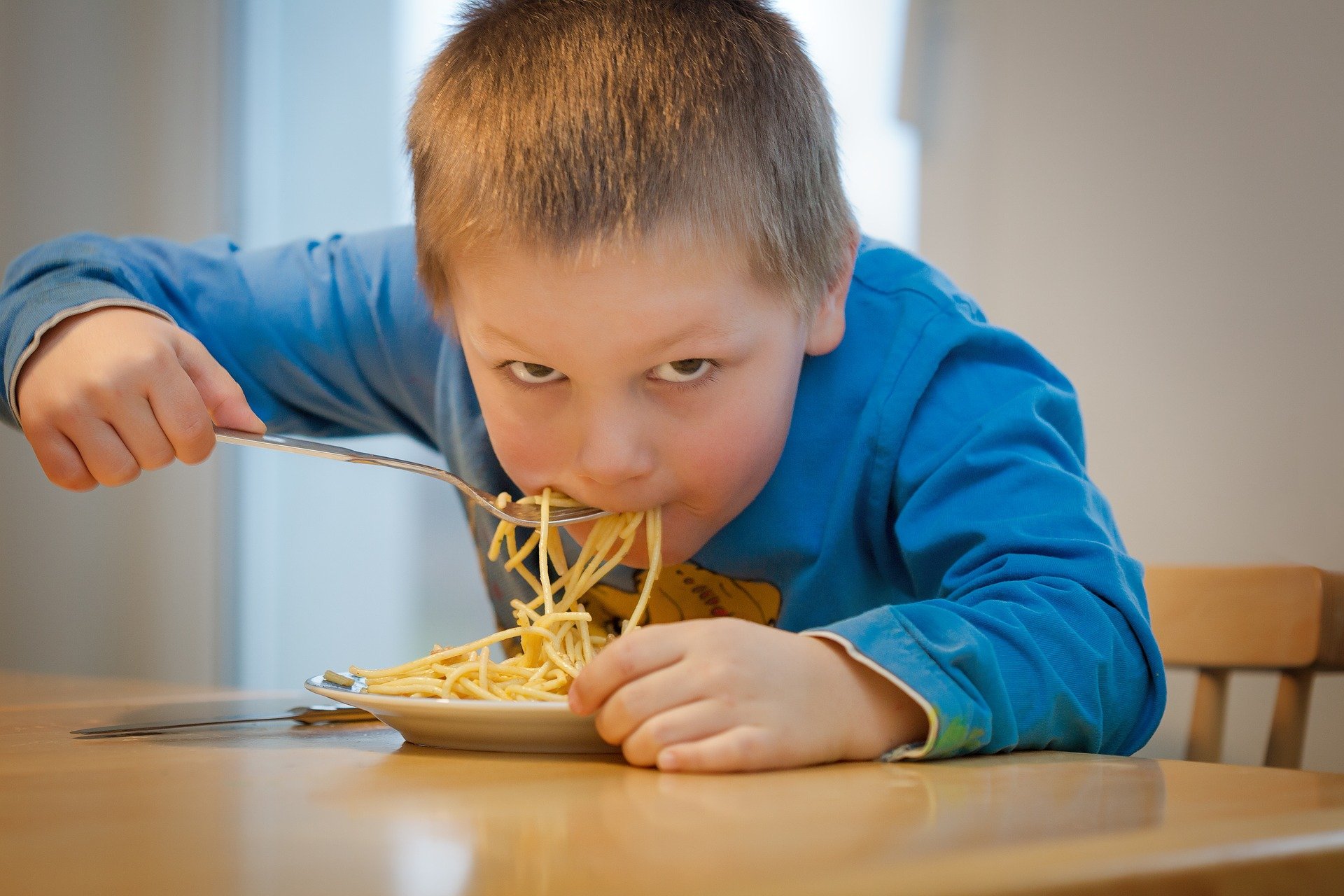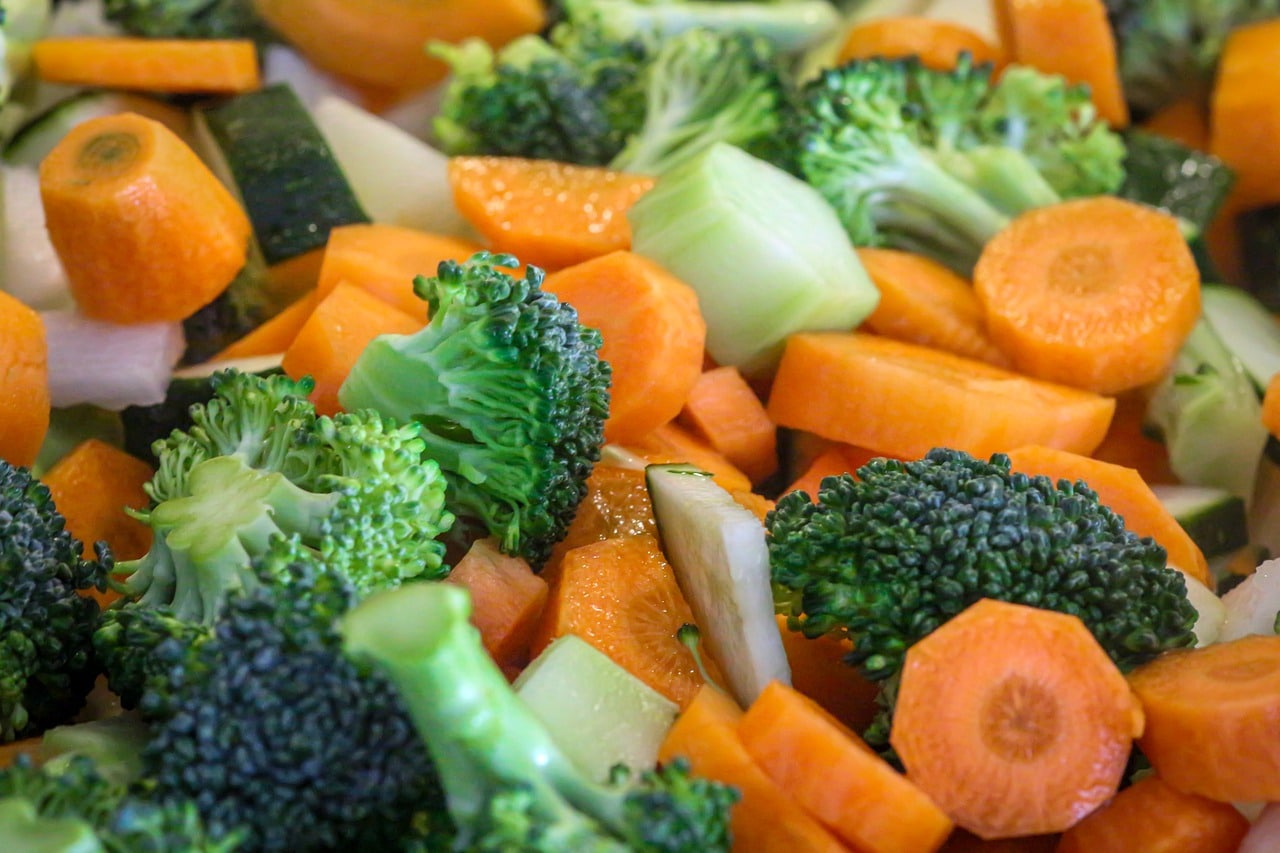How to get your kids to eat vegetables
Dinner time comes around, you’ve spent ages prepping something to feed your kids, and then they suddenly announce that they don’t like that any more (or never liked it in the first place even though they liked it yesterday!). Cue frustration, tantrums and general stress. How can kids make mealtimes so stressful and how do you get your kids to eat vegetables?! Seriously it really can be one of the most soul-destroying areas of being a parent.
We seemed to get this bit right – here’s everything I’ve learned and applied to get vegetable loving kids…
Children are more ‘primitive’ in their behaviours and therefore more prone to listening to their evolutionary cues.
Avioiding toxic foods and choosing energy dense onesAs foragers, foods which were off would often taste bitter, as would those with toxins, so they developed more of an aversion to bitter tastes. Children actually have more taste buds that detect this, which we lose when we’re older. Sweeter foods were also generally the more energy rich, and therefore favoured, which is why our children seem programmed to have a sweet tooth, no matter what we do!
There’s also a stage that children go through, around 2 years old (often coinciding with their discovery that they can say no to foods), when they start to develop a fear of foods they think are unsafe. This is possibly linked to them starting to forage for themselves and therefore needing to be sure that they were eating things that they should. They form ideas of what safe foods look and taste like, start to scrutinise what’s put in front of them and need to see each food a number of times before they can learn to accept them.

This combination of not liking foods with different shapes, textures or flavours, and avoiding anything at all bitter means that vegetables are often hard to get in. Bland plain processed and sweetened foods seem much safer.
Exerting their willIt’s important to understand too that most children go through a stage when they realise that they can exert their will over their own food. In a world that’s pretty much out of their control, what goes in their mouth is up to them. A pretty exciting realisation!
What this can mean is that around 18-24 months, most children will start to refuse most foods, even stopping eating foods they loved previously. This can seem worrying as their diet becomes very limited, but this phase will end, especially if you don’t fight them and try and seize their little bit of control. Let them make choices – children are actually often quite sensible when their options are explained to them calmly and logically!
Some children seem to never come out of this, possibly because of our own behaviours, or because there is such a wide availability of sweet, non bitter and plain foods that they never seem to need to expand their horizons further.

Why is it important that children eat vegetables? Healthy growth
Fruits and vegetables are essential for healthy growth and development and immune system function.
The brain requires the right nutrients to be effectiveEnsuring your child eats well can really help them to have the energy to concentrate and learn throughout the day, improving behaviour and grades and elevating mood. So if you’re feeding your kids healthy foods and they are getting what they need, you’ll have an easier life too as their behaviour will be more manageable… quite a few childhood disorders like ADHD have been linked to diet.

Some other more immediate benefits that you’ll find are that with the correct vitamins and minerals their energy levels are likely to be more balanced, which will make it easier for them to control their emotions. We’re all cranky when we’re tired right!
EpigeneticsI’m not going to get into the science too much, but epigenetics is important. 95% of our genes are not set when we’re born and can be ‘turned on and off’ based on the chemicals that are in our bodies. A lot of these are set during childhood, which means that by the time we’re adults, we can be prone to diseases like cancer and there’s very little we can do about it once we’re adults. I don’t say this to freak you out, I say it to motivate you. When you’re in that stressful, screaming, tantrum moment, remember WHY it’s so important to do this so you can stay strong in that moment and do what’s best for them, not what every part of your body is begging you to do.

I was one of those children who refused to eat most things and drove my parents mad. It didn’t help that I had ‘perennial rhinitis’ which wasn’t diagnosed until I was 12. Basically, my nose was permanently blocked until I was 12 and got on medication, which meant I had to stop to breathe whilst eating and so was really slow. Mealtimes were stressful as everyone else finished before me and would watch me eating. By my teenage years my parents had resigned themselves to my fate and no longer really tried to expand my diet from beige foods. Seriously, I had one option for lunch, (white bread baguette with peanut butter).
So when I had children of my own I knew that I didn’t want this for them. I did the following things, and I’ve ended up with two children (9 & 10) who eat pretty much anything I put in front of them, will try any foods and eat things that they don’t really like.
So here’s what we did, in the hope that it can help you too to have kids who love veg!
This isn’t just theory, it’s worked on my two!
You may need to try a variety of these, but I think the main principle is to stay calm at mealtimes and don’t make it a big deal. Most of the fussiness comes from fear, and we rarely overcome phobias by being shouted at and forced. Gentle, supportive encouragement and positive reinforcement is often much more effective.

If your kids are under 18 months old you’ve got a good opportunity to set the standard early on and apply the principles below to head off issues. At this age they’ll be much more receptive to anything you put in place, like there being no alternatives if they don’t eat it, and no meaning no.
When my son first started feeding himself, so around 18 months, he started to push his bowl away if he didn’t really like it. We’d simply tell him that there was nothing else, and go back to our conversations. He’d sit for about 30 seconds, waiting for a reaction, watching us eat, and then pull the bowl back and polish it off because he was hungry and he KNEW that there was nothing else coming.
Mealtimes should be a calm environmentNothing good comes of you or your children getting stressed at meal times. Trying new foods requires confidence and a feeling of security, which does not come from shouting.
Shift your mindset. If your child chooses not to eat their dinner, then that’s their decision. They are not going to starve themselves and it’s not a personal insult to your cooking skills. Explain to them calmly that that is their only option for food and there is nothing else and turn your attention elsewhere. Focus on the children who are eating their dinner or on your partner. No drama.
Understand the psychology and the effect of your actionsThis involves being a bit mindful and trying not to just react (keeping things calm above will help you with this).
As discussed above, children are programmed to have a fear of new foods. We can help them to get over this by encouraging them and rewarding them with positivity for trusting us and trying something. If they see us and others eat it they are also more likely to see it as safe.
Making a fuss and turning new foods into a stressful situation can exacerbate the fear of new foods. Remember that it’s not your child just being fussy, pretty much every child goes through this and it’s a natural part of development.
Shift your mindset. If your child chooses not to eat their dinner, then that’s their decision. Explain to them calmly that the food in front of them is their only option and there is nothing else and turn the attention back to another child or to a conversation.
For the rest of the article and a load more ways to get your children to eat vegetables, pop to www.eatthinkexplore.com/how-kids-eat-vegetables
I'll also be talking this through in my live Q&A this week in my Facebook Group - come join us if this is something you have issues with www.facebook.com/groups/ecoeating
I hope this helps
Sarah
EAT THINK EXPLORE
I help working mothers with health conditions overcome barriers to improving the way they eat so they can stop wasting their time and energy on draining health conditions and instead focus on the…
Nibav Home Lifts: A Smarter, Safer Way to Elevate Your...
Energy-Efficient Home Lifts: A Sustainable Mobility Solution
More Articles
What are the main types of home lifts available?
CYBERSECURITY STARTS WITH PEOPLE: WHEN KNOWLEDGE IS THE...
Unleash Your LinkedIn Potential with the Ultimate AI Tool...
Would you like to promote an article ?
Post articles and opinions on Chester Professionals
to attract new clients and referrals. Feature in newsletters.
Join for free today and upload your articles for new contacts to read and enquire further.






